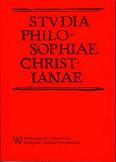Znaczenie wyrażenia a sens wypowiedzi. Semantyczne i pragmatyczne składniki komunikacji
The linguistic meaning and sense of an utterance. Semantic and pragmatic components of linguistic communication
Author(s): Janina BuczkowskaSubject(s): Philosophy
Published by: Wydawnictwo Naukowe Uniwersytetu Kardynała Stefana Wyszyńskiego w Warszawie
Keywords: meaning of expression; sense of utterance; context; pragmatics; semantics; communication
Summary/Abstract: The aim of this article is to analyze the semantic and pragmatic determination of linguistic meaning. Current research in pragmatics emphasize the influence of context on the interpretation of the utterance. The theses of “semantic underdetermination” of linguistic meaning is assumed. The article defends the autonomy of semantic properties of expressions in the process of communication. It refers to the M. Devitt proposal to associate semantic properties of the expression with the representational function of language. This allows to distinguish between the meaning of expression in the literal sense and the utterance interpretation in which the context of the utterance is taken into account. The terms what is said and what is meant proposed by Grice an Devitt correspond to this distinction. It has been shown that what the sentence says, the meaning of an expression is defined semantically and is the basic and necessary condition of linguistic communication. Pragmatic properties do not constitute the meaning of expressions (what is said) but sense of utterance (what is meant) which is a combination of sentence, context and interpretation. Although the sense of the utterance is richer and different from the meaning of the expression, the phrase used in a speech retains its conventional content. What is said provides independent premises apart from context to interpretation of what is meant.
Journal: Studia Philosophiae Christianae
- Issue Year: 50/2014
- Issue No: 2
- Page Range: 25-45
- Page Count: 21

